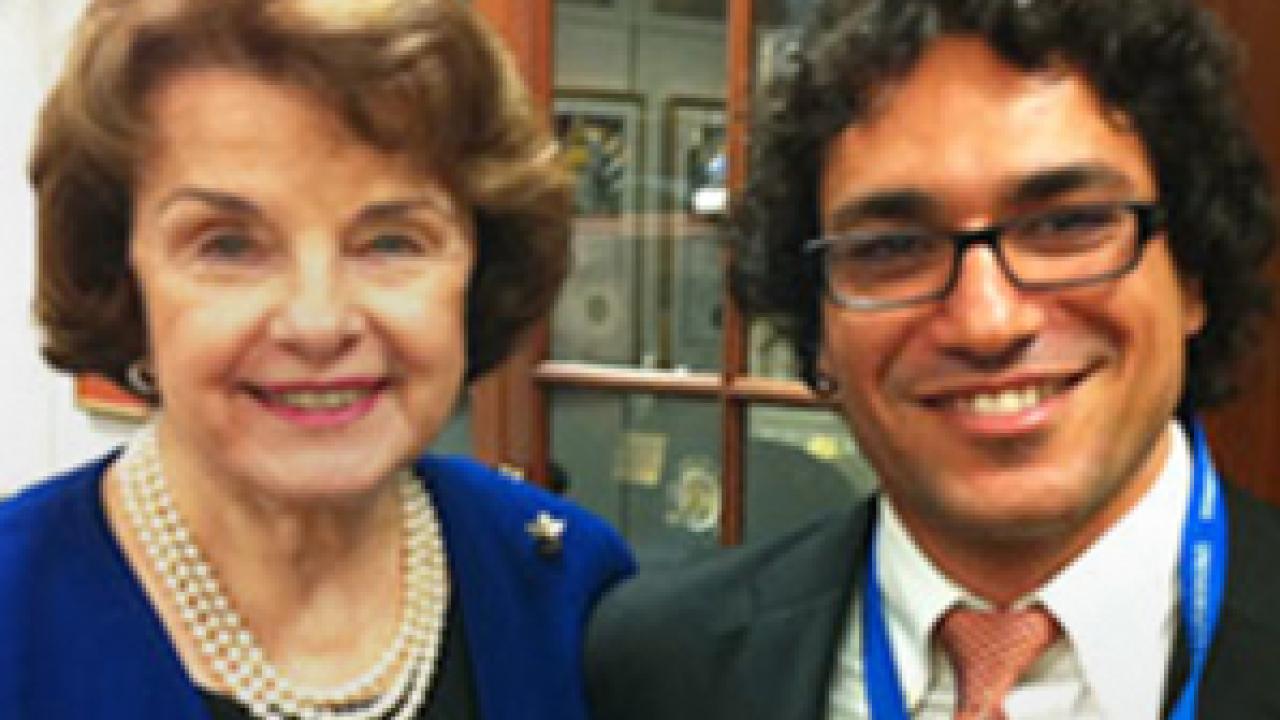On campus, as a Ph.D. student, Morteza Roodgar is working on a new and more sensitive test for tuberculosis.
In the nation’s capital recently, he worked the halls of Congress as a participant in the annual UC Day in D.C. He met with California Sen. Dianne Feinstein, and Sacramento-area Reps. Ami Bera, John Garamendi and Doris Matsui.
Beyond advocating for federal support of the university, Roodgar discussed the “translational” aspect of his work: how to get his novel TB test out of the lab and into general use.
The UC Davis Health System’s Clinical and Translational Science Center helped Roodgar along in the 2012-13 academic year, with an appointment as a CTSC scholar. He also studied last year as a fellow in the Graduate School of Management’s Business Development Certificate Program to help with his mission of commercializing his test.
Roodgar came to UC Davis in 2009 with a doctorate in veterinary medicine from his native Iran, earned a master’s degree in preventive veterinary medicine from the School of Veterinary Medicine and then started his Ph.D. program in the fall of 2010.
His work is interdisciplinary, in the Molecular Anthropology Laboratory, where his major adviser, anthropology professor David Glenn Smith, is the principle investigator; at the California National Primate Research Center; in the Biological Safety Level 3 lab at the Center for Comparative Medicine; and in the Department of Medical Microbiology and Immunology at the School of Medicine (Genome and Biomedical Science Facility). Faculty members in the Clinical and Translational Science Center are also involved in his project.
The CTSC and the Office of Research supported Roodgar’s trip to Washington, D.C. He joined other students from around the UC system in backing up this year’s UC Day theme, which focused on increased support for graduate education and research.
Roodgar is investigating genetic markers of latent tuberculosis to develop a test that would allow doctors and veterinarians to treat TB before it becomes active. Mycobacterium tuberculosis can attack any part of the body, usually the lungs, and, not treated properly, TB can be fatal.
Some 2 billion people in the world are believed to have latent TB infection, that is, they have been infected but they are not sick and cannot spread the bacteria to others. The disease becomes active in 5 percent to 10 percent of latent TB cases.
Tuberculosis remains a serious threat worldwide, especially for people who are living with HIV and thus vulnerable to infection. According to the U.S. Centers for Disease Control and Prevention, TB is one of the leading causes of death in HIV-infected people.
TB can also infect dairy cows and other animals, increasing the risk of human infection through food products.
Media Resources
Dave Jones, Dateline, 530-752-6556, dljones@ucdavis.edu
